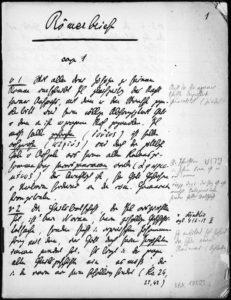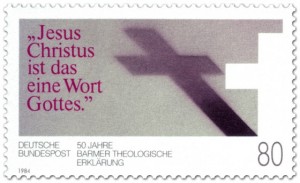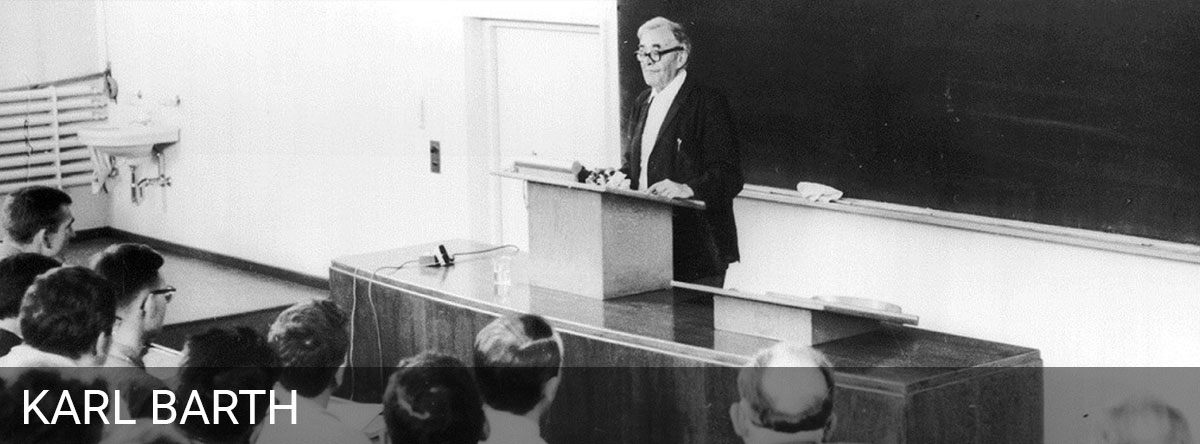Karl Barth was an extremely productive writer who, during his lifetime, published more than 600 works. Most of them held importance to his body of work and contributed to his status as one of the most important thinkers within Christian history. The following are the publications that gained most international attention and are considered as cornerstones of his legacy:
The Epistle to the Romans
In 1919, while working as a pastor in Safenwil, Karl Barth published his first commentary on St. Paul called The Epistle to the Romans (Der Römerbrief), which he began in 1916. In 1922, he published a completely rewritten second edition. These commentaries were unusual for their biblical and dialectical theology and their open attacks on humanism. Barth contradicted liberal theologians who considered scripture little more than an account of human religious experience, and who were concerned only with the historic personality of Jesus.
In the Epistle to the Romans, Barth argued that God challenges and overthrows any attempt to ally God with human cultures, achievements, or possessions. Barth wrote that in scripture we find “divine thoughts about men, not human thoughts about God.”
Karl Barth’s commentary gained international attention and won zealous supporters as well as inexorable enemies. The “great blow against the theologians” had been struck, and theologians in Germany and Switzerland began to single themselves out as as friends or foes, to applaud or to retaliate. As a consequence of the attention aroused by his commentary, Barth was appointed a professor at the University of Göttingen, Germany, in 1921, despite his lack of a doctorate degree.
Read more about the Origins of the Römerbrief (in German) on the website of the Karl Barth-Archiv.
Karl Barth speaks about writing the Epistle to the Romans in this video.
Barmen Declaration
In 1934, as the Protestant Church attempted to come to terms with the Third Reich, Karl Barth was largely responsible for the writing of a set of theses called “The Theological Declaration of Barmen.” This declaration was adopted at a meeting of the General Synod of the Confessing Church in Wuppertal-Barmen, Germany, on May 31, 1934, which was attended by representatives from Lutheran, Reformed and United churches.
The synod recognized the idolatry of the “German Christians” in giving an ultimate commitment to the state rather than God as error. Instead, participants confessed that Jesus Christ, as attested to in Scripture, was proclaimed as the one Word of God and Lord of all life.
The Barmen Declaration was a call to resistance against the theological claims of the Nazi state and defined the Christian opposition to any interpretation of Christianity based on nationalistic theories. It also guided the Confessing Church in Germany in its struggle with the National Socialist regime, though Karl Barth felt the church neglected the political and ecumenical aspect of the declaration. The declaration numbers until today among the confessional documents of many churches worldwide. Barth mailed the Barmen Declaration to Adolf Hitler personally, but did not get any response.
In this video, Karl Barth discusses the Confessing Church.
Church Dogmatics
During his professorship in Bonn, Karl Barth began his work on the Church Dogmatics, his major work, which he left unfinished despite its more than 9,300 pages and thirteen volumes. The volumes were published in stages between 1932 and 1967. The Church Dogmatics attempts to provide a comprehensive account of the efforts to interpret the Christian Gospel during the past twenty centuries. Barth made it his task “to take all that has been said before and to think it through once more and freshly to articulate it anew as a theology of the grace of God in Jesus Christ.” The Church Dogmatics addresses four major doctrines: Revelation, God, Creation, and Atonement or Reconciliation. Initially, Barth had also intended to address the doctrine of Redemption, an idea he abandoned later in his life. The Church Dogmatics has widely been regarded as one of the most important theological works of the twentieth century.




